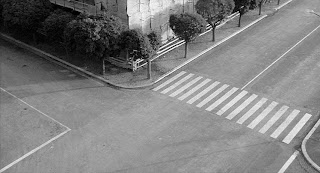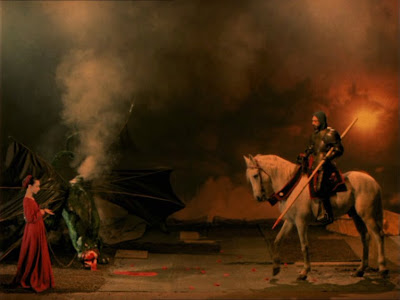The delightful Mexican poster for Uncle Boonmee
Herewith a roundup of the 20 best new films I saw for the first time in 2010. The ranking is somewhat arbitrary.1. Uncle Boonmee Who Can Recall His Past Lives (Apichatpong Weerasethakul)
2. Certified Copy (Abbas Kiarostami)
3. Mysteries of Lisbon (Raul Ruiz)
4. Poetry (Lee Chang-Dong)
5. Film Socialisme (Jean-Luc Godard)
6. Carlos (Olivier Assayas)
7. Oki’s Movie (Hong Sang-Soo)
8. The Strange Case of Angelica (Manoel de Oliveira)
9. Tuesday, After Christmas (Radu Muntean)
10. Another Year (Mike Leigh)
The first ten films all played at this year’s especially strong New York Film Festival. Only three of them will have opened theatrically in New York by the end of the year.
Guest
11. Guest (Jose Luis Guerin)A film about a year spent attending film festivals as a guest, Guerin's beautiful black-and-white film is only tangentially about the festivals where he presented his great film, In the City of Sylvia, in 2007-8. His real subject is the people he meets outside the festivals, primarily the poor and dispossessed citizens of cities such as Bogota, Cali, Havana, São Paulo, Lima, Santiago, and finally Jerusalem. Their eloquence matches the power of Guerin's poetic images.
12. The Social Network (David Fincher)
13. Shutter Island (Martin Scorsese)
14. The Ghost Writer (Roman Polanski)
The next three films prove that genuine auteurs can still occasionally make great films within the decaying remains of the Hollywood system.
The Portuguese Nun
16. The Portuguese Nun (Eugène Green, 2009)
Two belated releases from Portugal that further confirmed the vitality of a national cinema that nurtured masters such as Ruiz and de Oliveira, Pedro Costa, João Pedro Rodrigues and the late João Cesar Monteiro, some of whose delightfully unclassifiable films I first discovered this year.
17. Inside Job (Charles Ferguson)
18. And Everything Is Going Fine (Stephen Soderbergh)
Two excellent documentaries: a lucid explanation of how the financial crisis happened and who is responsible; and a moving, engaging portrait of the late Spalding Gray that uses no superfluous commentary, only clips from the arc of his fascinating life and career.
19. The Father of My Children (Mia Hansen-Love)
20. Animal Kingdom (David Michod)
UPDATE 1/18: I'm going to see the powerful Australian crime thriller/dysfunctional family drama Animal Kingdom for a second time in anticipation of my trip to Sydney and Melbourne in March.
UPDATE: Let me add that one of the most powerful, emotionally wrenching films I have seen in this or any year, Lee Chang-Dong's Secret Sunshine, now playing at IFC Center, screened over 3 years ago at the New York Film Festival which is where I first saw it. If I had not seen it previously it would surely rank near the top of my list.
Honorable Mention: Somewhere (Sofia Coppola); How I Killed My Mother (Xavier Dolan); Greenberg (Noah Baumbach); Winter's Bone (Debra Granik); Please Give (Nicole Holofcener); Scott Pilgrim vs. the World (Edgar Wright); Fish Tank (Andrea Arnold); True Grit (Joel and Ethan Coen); October Country (Michael Palmieri, Donal Mosher)


















































